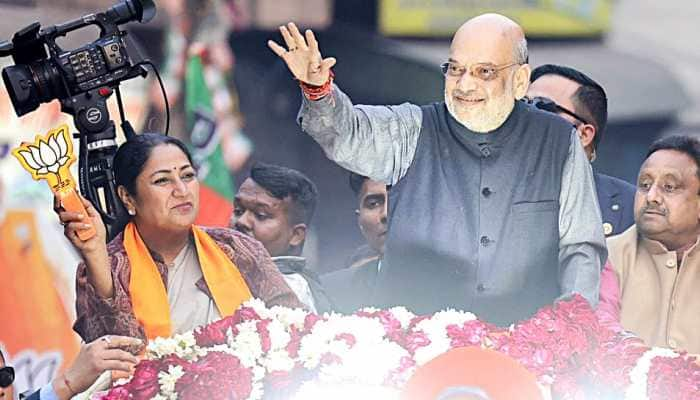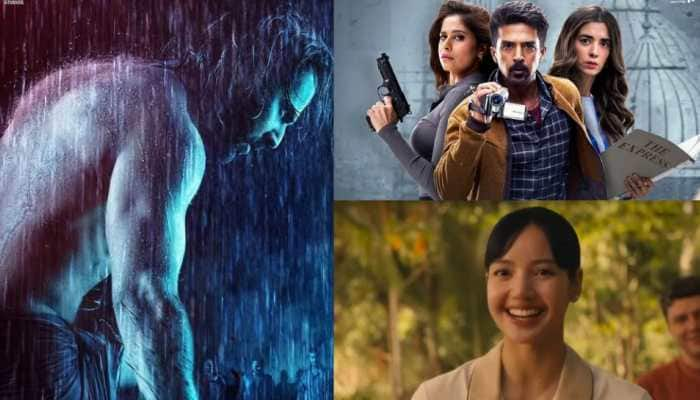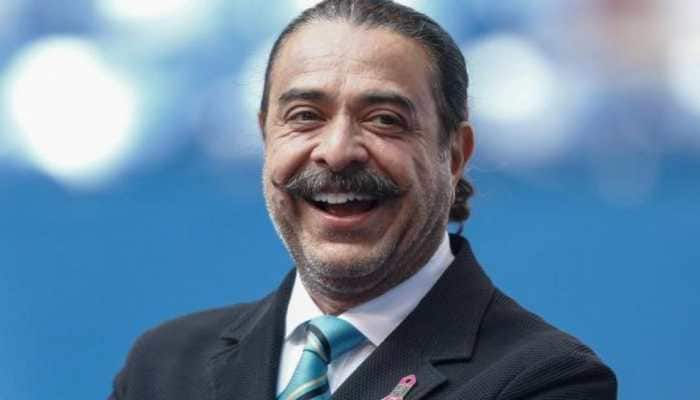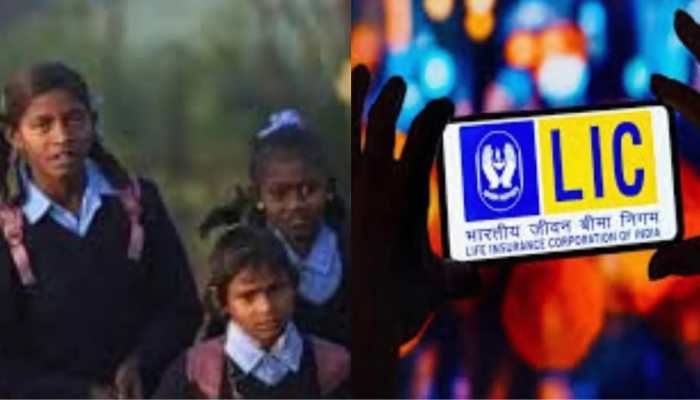Delhi Metro, DTC buses need greater synergy to help travellers: Chief Secretary
Delhi Chief Secretary Naresh Kumar pitched for bringing "greater synergy" in operations of the DMRC and DTC, saying this is needed to promote use of public transport, as reported by PTI.
- Delhi Chief Secretary pitches for greater synergy between DMRC and DTC buses
- This is needed to promote use of public transport and provide more ease to commuters, he said
- Full implementation of common mobility cards across the network is essential in achieving synergy
Trending Photos
) Image for representation
Image for representation Addressing a gathering at an event at Metro Bhawan to mark the 28th foundation day of the Delhi Metro Rail Corporation (DMRC), Delhi Chief Secretary Naresh Kumar pitched for bringing "greater synergy" in operations of the DMRC and DTC. He said with the expansion of mass rapid transit networks, this is needed to promote use of public transport and provide more ease to commuters.
He also stressed that full implementation of common mobility cards across the network was essential in achieving that synergy. Kumar, who recently took charge as the new chief secretary of Delhi, said, several years ago, he had suggested to the city government to "integrate Delhi Metro and DTC" but somehow that has not been considered.
"If we cannot integrate the two, we can surely bring in greater synergy in operations of the metro and the buses, and synergy in scheduling services. With the advancement in technology, use of public transport has to be enhanced," he said.
Also read: Loco pilot stops passenger train for an hour in Bihar for the ‘forbidden’ drink
Manoj Joshi, Secretary, Ministry of Housing and Urban Affairs (MoHUA), in his address described DMRC as an "island of excellence in Delhi", and also emphasised on the need for working in synergy.
"Earlier there was a vacuum and one could operate that way, but now if we work separately and not in an integrated way, then everyone will suffer loss, and we won't be able to leverage the benefit of synergy," he said.
There is need for a greater integration among the networks of metro, Indian Railways, and the new Delhi-Meerut Regional Rapid Transit System (RRTS) that is coming up, to provide greater ease to commuters, he said, adding, the recently-inaugurated foot-over-bridge connecting New Delhi metro station with New Delhi railway station was a welcome integration step, and has provided ease to people.
"Entering a railway station is quite a challenge, and entering particularly the Delhi Cantonment railway station is quite an experience. Besides, the Delhi Cantonment metro station is located somewhere else, and even travelling by a bus or a car, it is difficult to reach this railway station. So, integration is needed," the MoHUA secretary said.
He also said the entry from Ring Road side to the multimodal transport complex coming up at Sarai Kale Khan, also needs to be looked into and properly planned.
DMRC's Managing Director Vikas Kumar later told reporters that DMRC and DTC have been endeavouring to have an integration in operation, and the chief secretary essentially emphasised on bringing greater synergy in operations, between the two agencies.
"So, let's say, if a person is getting off at a metro station, he or she would know the timing of the buses that can be taken from the nearest place," he said. The Delhi chief Secretary in his address also pitched for boosting last-mile connectivity, which would in turn promote greater use of public transport by people.
He also cited the example of DTC bus route no 620 that runs from Vasant Kunj to Connaught Place area, and how people were initially skeptical about it, but it proved a very convenient service for people.
People largely drive two-wheelers or cars to travel to places more out of "compulsion than choice." And, say if 10,000 buses are integrated with the Delhi Metro services, then Delhi roads will not only get significantly decongested, but as a collateral benefit it would also mean a cleaner environment, he said.
Also read: Qantas to operate world's longest non-stop flight from Sydney to New York and London
The chief secretary also suggested establishing institutions like global education centres or tech-driven hubs, in the field of emerging technologies like augmented reality, artificial intelligence, Internet of Things, etc., on plots near the metro tracks where global players can set up centres.
Joshi congratulated DMRC for its achievements in these years, and said, "In India, there are very few projects in the government sector which have worked with such excellence as Delhi Metro, in both construction and operations. Basics of HR management and good leadership are probably the reasons behind it."
The DMRC's managing director in his welcome address said, "Today, we operate one of the most advanced as well as one of the most punctual metro networks in the world. Delhi Metro is the lifeline of the National Capital Region where it has helped usher in a new era of rapid economic growth, enhanced living and travelling comfort, and avenues for the generation of employment."
At present, DMRC is handling operations and maintenance of over 390 km of network, comprising 286 metro stations, including Rapid Metro in Gurugram and Aqua Line in Greater Noida, and is ranked amongst one of the world's largest metro networks.
On this occasion, the annual Managing Director's Awards were also given. Hauz Khas metro station was adjudged the 'Best Metro Station' and the Sarita Vihar depot was awarded the 'Best Depot' rolling shield, officials said.
(With inputs from PTI)
Stay informed on all the latest news, real-time breaking news updates, and follow all the important headlines in india news and world News on Zee News.
Live Tv







)
)
)
)
)
)
)
)
)
)
